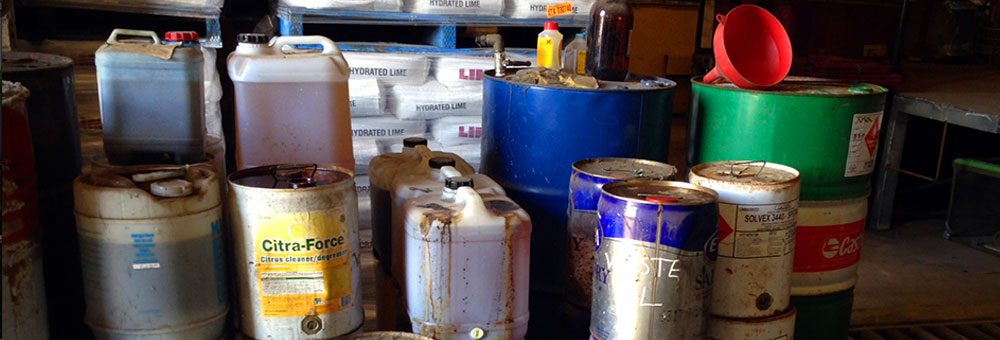Safe and Lasting Liquid Waste Disposal: Your Go-To Provider
Safe and Lasting Liquid Waste Disposal: Your Go-To Provider
Blog Article
Understanding the Comprehensive Refine of Liquid Waste Disposal: Best Practices and Environmental Influence Factors To Consider
The management of fluid waste disposal is a complex problem that calls for a comprehensive understanding of numerous best methods and their associated ecological influences. From the types of liquid waste produced to the techniques used for collection, treatment, and final disposal, each action plays a vital function in guarding ecological communities and public health and wellness.
Kinds Of Liquid Waste
Comprehending the various sorts of liquid waste is essential for reliable management and disposal methods. Fluid waste can be extensively classified into a number of kinds, each requiring one-of-a-kind handling and treatment techniques.
Industrial fluid waste commonly consists of unsafe materials, including hefty metals, solvents, and chemicals, produced throughout making processes. These wastes demand strict regulatory conformity to secure human health and the environment. Domestic fluid waste mostly refers to wastewater generated from houses, including sewer and greywater, which, although less toxic, can still position substantial risks if improperly handled.
Agricultural fluid waste, including overflow from farms, often has plant foods and pesticides that can cause ecological deterioration if not treated effectively. Clinical fluid waste, generated from healthcare facilities, consists of infected fluids such as bodily fluids and chemicals, requiring specialized disposal methods to avoid infection and ecological contamination.
Lastly, oil and grease waste, normally created by dining establishments and auto markets, can trigger extreme obstructions in drain systems otherwise handled correctly. Recognizing these groups facilitates targeted techniques for treatment, conformity with laws, and reliable disposal techniques, inevitably promoting environmental sustainability and public wellness security.

Collection Techniques
Efficient collection methods are essential for the appropriate management of liquid waste, making certain that it is collected safely and successfully before treatment or disposal. Various methods are used depending on the kind of liquid waste produced, the volume, and the certain features of the waste.
One typical technique is making use of committed collection containers or sumps, which are created to record fluid waste at the resource. These systems often include pumps that help with the transfer of waste to bigger storage containers or treatment centers. In addition, mobile collection systems outfitted with vacuum cleaner technology are employed in situations where waste is generated periodically or in hard-to-reach areas.
For commercial setups, closed-loop systems can properly decrease spills and leaks, permitting for the recovery and reuse of liquid waste. It is likewise vital to educate employees on proper collection methods to minimize risks connected with hazardous materials.
Moreover, implementing regular maintenance routines for collection devices makes certain optimal efficiency and security. The combination of advanced tracking systems can enhance collection performance by supplying real-time information on waste degrees and possible risks. Overall, effective collection techniques are fundamental to sustainable liquid waste monitoring methods.
Therapy Processes
Treatment processes play a crucial role in the management of fluid waste, transforming potentially unsafe products right into recyclable sources or safe effluents - liquid waste disposal. These procedures can be broadly categorized into physical, chemical, and biological approaches, each customized to attend to particular pollutants existing in the waste stream
Physical treatment techniques, such as sedimentation and filtering, work by getting rid of suspended solids and particulate matter. These methods are commonly the very first step in the therapy chain, efficiently minimizing the lots on subsequent processes. Chemical treatments involve making use of reagents to neutralize unsafe materials, precipitate heavy steels, or oxidize organic pollutants, thus enhancing the safety and security of the effluent.
Organic treatment processes, including activated sludge systems and anaerobic food digestion, profit from the natural capabilities of microorganisms to break down organic issue. These techniques are especially reliable for wastewater having biodegradable contaminants. Advanced therapy innovations, such as membrane filtration and advanced oxidation processes, are significantly utilized to accomplish higher levels of purification.
Including a combination of these treatment methods not just guarantees compliance with regulatory criteria yet also promotes ecological sustainability by recovering important resources from fluid waste.
Disposal Options
Just how can companies ensure the liable and risk-free disposal of fluid waste? Effective disposal options are essential for guarding public health and the setting. The find this primary approaches consist of land therapy, incineration, and disposal complied with by discharge into community wastewater systems.
Land disposal involves the cautious control of liquid waste in assigned garbage dumps, guaranteeing that it does not seep into bordering soil or water. Incineration, on the other hand, topics fluid waste to heats, converting it right into ash and gases, which need appropriate filtering to reduce emissions. This technique appropriates for contaminateds materials that can not be dealt with with conventional methods.
In cases where liquid waste can be treated, companies may choose chemical or click this site biological therapy processes to neutralize damaging components before releasing the treated effluent right into local systems. This course generally aligns with regulative requirements, making certain that the effluent satisfies safety standards.
Inevitably, organizations should conduct detailed assessments of each disposal option to establish its viability, thinking about factors such as waste composition, governing conformity, and potential risks to health and wellness and the environment. By picking proper disposal techniques, businesses can add to an accountable waste monitoring method.
Ecological Effect
The environmental impact of fluid garbage disposal is an important consideration for organizations looking for to minimize their eco-friendly footprint. Inappropriate disposal approaches can lead to significant contamination of water resources, soil destruction, and negative effects on neighborhood communities. For example, harmful liquids can seep right into groundwater, posturing dangers to alcohol consumption water products and aquatic life. Furthermore, the discharge of untreated or improperly dealt with waste right into surface area waters can lead to eutrophication, resulting in oxygen exhaustion and the succeeding death of fish and other organisms.

To alleviate these influences, organizations should take on ideal techniques such as implementing strenuous waste treatment processes, advertising recycling and reuse, and adhering to governing requirements. By taking an aggressive strategy to fluid waste administration, entities can considerably decrease their environmental impact while sustaining sustainable advancement goals. Inevitably, a detailed understanding of the environmental effects connected with fluid garbage disposal is necessary for informed decision-making and liable stewardship of natural resources.
Verdict
Efficient monitoring of fluid waste is critical for protecting environmental integrity and public wellness. Inevitably, an extensive understanding of liquid waste disposal not just alleviates ecological impacts however also fosters a dedication to accountable resource administration and environmental stewardship.
The management of fluid waste disposal is a complex concern that requires an extensive understanding of various best techniques and their linked environmental influences. From the kinds of fluid waste created to the techniques utilized look at here now for collection, treatment, and final disposal, each action plays an important role in guarding communities and public wellness.The ecological effect of liquid waste disposal is a vital consideration for organizations looking for to minimize their eco-friendly footprint. Eventually, an extensive understanding of the environmental influences linked with liquid waste disposal is necessary for informed decision-making and accountable stewardship of all-natural resources.
Inevitably, a detailed understanding of liquid waste disposal not just mitigates environmental influences but also fosters a dedication to liable resource management and ecological stewardship.
Report this page